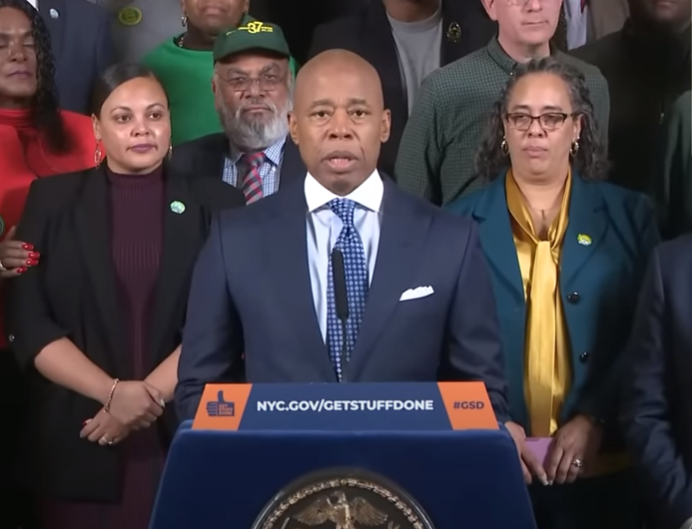After much public haranguing about expired contracts and contract negotiations, New York City Mayor Eric Adams and the largest labor union in the city, District Council 37 (DC 37), agreed to a tentative contract that could cost upwards of $4.4 billion through 2027.
Mayor Adams, in a press release, said he was “extremely proud” to have agreed to “a landmark agreement” with DC 37. Adams claimed, “It is a great deal for workers and fair to city taxpayers.”
DC 37, whose website claims it represents 150,000 members and 89,000 retirees, heralded the deal made between City Hall and the union. DC 37 Executive Director Henry Garrido said, in a statement, “Through this contract, we’ve secured long-overdue raises for city workers, protected their premium-free health benefits, and lifted the lowest wages to an $18 minimum. We made changes that will help the city be competitive in its retention and recruitment of workers, including the creation of a child care trust fund and flexible work schedules with telecommuting options.”
Garrido said that the deal was “a fair and reasonable contract.”
The new contract will impact about 90,000 city workers.
The five-year contract gradually raises pay on a yearly basis to a total of 16% (with an average of 3% pay bump per year) by 2026 and is retroactive to May 2021, which is the expiration date of the previous contract. Workers will receive a one-time bonus of $3,000 when the contract is ratified by vote.
The contract includes a pilot program for remote work and flexible work hours, which workers became accustomed to due to pandemic work policies. But union members were divided on this provision because it favored professions that perform remote work compared to professions that do not have the option, such as first responders. There were also critics who said that a pilot program was not necessary because the pandemic work environment was a pilot program and that the 3% annual pay raise was not enough to offset the current inflation rate of 6%.
Other parts of the contract outlined the creation of a $73 million “equity fund” to help resolve understaffing problems facing city departments, the formation of a child care trust fund with a $3 million annual budget, and a raise in the minimum hourly wage from $15 to $18 an hour.
Despite Adams’ and Garrido’s praise of the contract, a budget watchdog group pointed out that the contract may add over $16 billion to the city’s spending over the next four years. The mayor’s office acknowledged that it had to budget $1.5 billion from its labor reserve to pay for the new contract.
Based on budget projections, New York City has a budget deficit of $2.9 billion. Even with proposed budget cuts, the mayor’s office and DC 37 have not addressed how the city would be able to afford the additional costs incurred by the new five-year contract.
